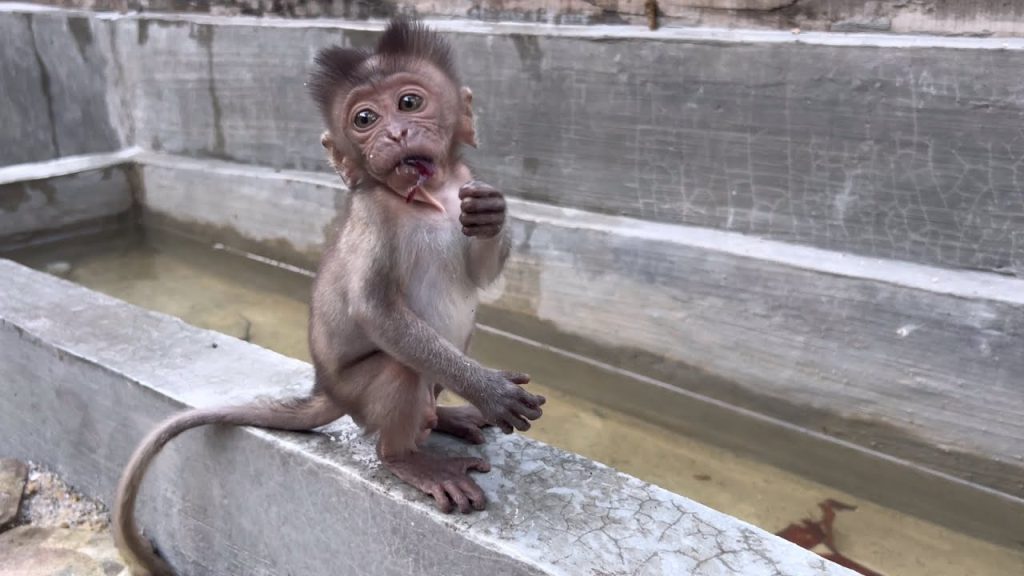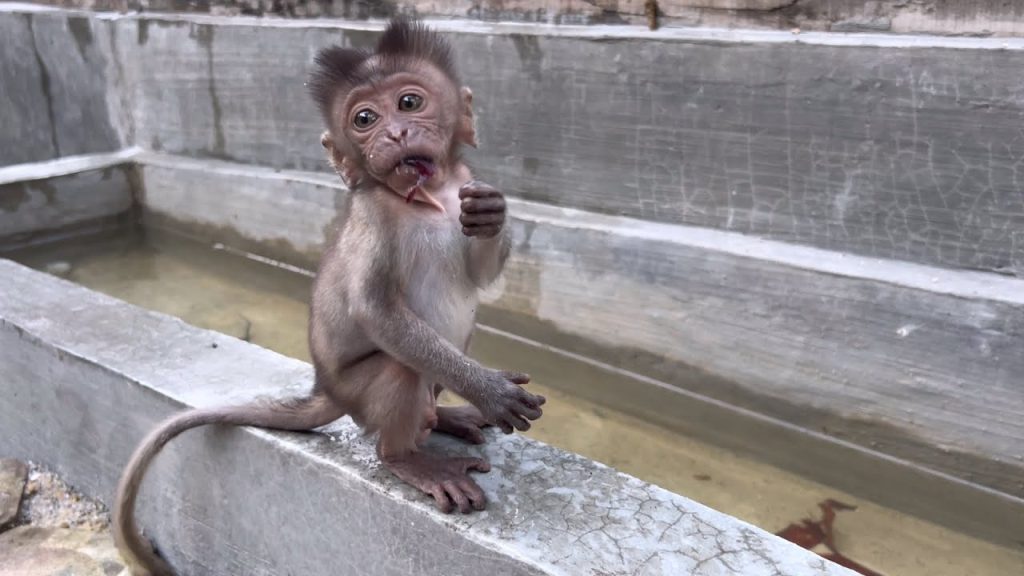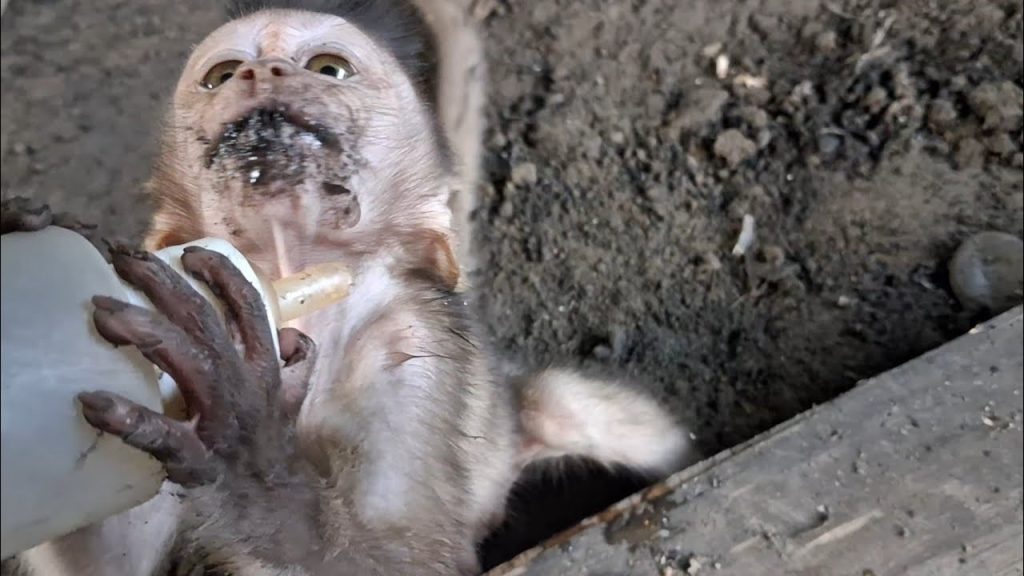
When a tiny baby monkey suddenly realizes everyone has walked away — that the group has moved, the caregiver stepped out, the companions are no longer touching her, no longer within body-distance, no longer offering shared presence — the emotional wave that hits her is not simply “sadness.” It is abandonment shock. And her reaction becomes a dramatic physical collapse, because she does not yet possess an internal emotional scaffold strong enough to hold the fear upright.
In adult humans, “being left alone” can be interpreted through thought, language, and explanation. But in a baby monkey, belonging is not philosophical — it is biological. Every neuron in her survival system expects social contact as constant background safety. Her emotional security comes from smell, warmth, shared rhythm of breathing, grooming, soft weight contact, and visual proximity. So when the group is suddenly absent, her nervous system interprets that as danger. It feels like the world suddenly became empty… or hostile.
So she may react by throwing herself backward, or slamming into the floor, or screaming for rescue — not as manipulation, not as tantrum performance, but as instinctive panic. Her body is broadcasting an emergency signal.
At this stage of development, she does not know how to hold loneliness without collapsing. She cannot yet learn self-soothing in isolation. She needs scaffolding — soft voice, gentle containment, predictable return patterns. The caregiver must ensure the return happens before panic becomes trauma. If separation is unpredictable — if the adult vanishes without pattern — her nervous system will record abandonment as a persistent threat, and her future behaviors will reflect fear disguised as aggression, clinging, or freezing.
But if the adult returns in a consistent rhythm, if the coming and going has structure, she will learn a deeper wisdom: solitude is temporary, and connection returns. That is the beginning of resilience.
At this age, abandonment is not a story — it is a full-body emergency.
Her reaction is dramatic because her brain does not yet possess the tools to “wait” safely. She falls apart because her sense of existence still depends on proximity. One day she will learn to stand in absence, to breathe through separation, to trust the return of caregivers — but right now the floor becomes her emotional anchor, and collapsing becomes her language for “I cannot do this alone.”


